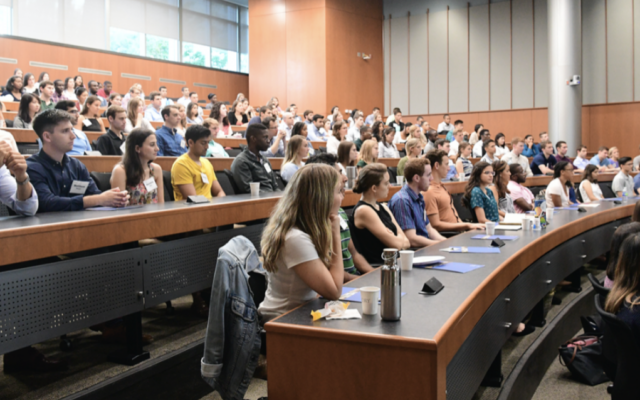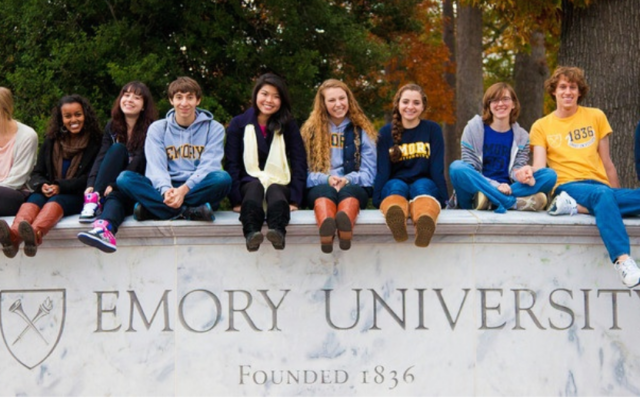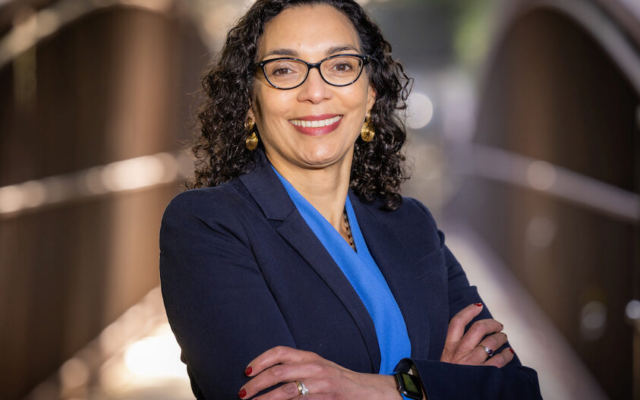New Emory Dean’s Family History is Black & Jewish
Barbara Krauthamer grew up with a father who was a Holocaust survivor and a mother whose parents were Southerners.
The new Dean of the College of Arts and Sciences at Emory University is Barbara Krauthamer whose father was a Holocaust survivor who came to America in the late 1930s. In that respect, she shares the family legacy of Emory’s president, Gregory Fenves, whose father was also a survivor of the Holocaust. Krauthamer’s mother is African American.
The new Emory Dean was previously Dean at the University of Massachusetts in Amherst. She’s a recognized scholar of African American history and the first Black woman to be named Dean of Arts and Sciences at Emory. The AJT asked her what she thought her parents who came from such different backgrounds contributed to her development.
BK: I think what they had in common and certainly imparted to their children was a genuine belief in the power of education and a genuine love of intellectual life and education. My mom and dad really impressed upon us that you were supposed to get an education and go do good in the world in some way. And I think they were both very attuned to realities and legacies of racism, antisemitism, and sexism. It was very much part of my upbringing to speak out about it, that we have an obligation to make it better or to work to make it better.

AJT: Did your father share with you his experiences during the Holocaust and what are some of the insights he might have had from that experience?
BK: My father and my grandmother escaped from Germany after they witnessed Kristallnacht, the night Jews were attacked all over Germany in 1938. They were sponsored by Quakers who brought them to the United States. They first went to a Quaker colony in Iowa and then, eventually, went to New York City.
My father eventually became a neuroscientist, and he helped establish the Rutgers College of Medicine in 1954, where he taught while I was growing up. Our family encouraged him to write his recollections of his life before he died and, amazingly, have photographs as well.
AJT: And your mother?
BK: My mother was African American. Her parents came from the South, from Georgia and Virginia, but she grew up in a leafy suburb in New Jersey. I think she was shielded from some of the more virulent and vicious aspects. My mother was the first African American woman to receive a PhD in clinical psychology from Rutgers University.
AJT: So, you grew up in an intellectual home?
BK: Yes, very much so. I think both of them taught us a real commitment to critical inquiry, to not just accept the received wisdom, but to ask questions. My dad was always very skeptical, for example, of nationalism, for the obvious reasons that he had personally observed in Nazi Germany. He was very, very, very skeptical of intense nationalism in the United States. And so, he really pushed us to ask those questions like why do we sing a national anthem or march in a parade, what does that accomplish? Why is that a value?

AJT: And how did their experience influence your choice of career?
BK: I thought I was going to be a scientist. I was 100 percent sure I was going to follow in my dad’s footsteps. And then, I discovered the glory of a liberal arts education. I really enjoyed thinking and researching about human experiences, about people’s lives and, sort of, the factors that have shaped the historical forces that have shaped the world we live in today.
AJT: What are your thoughts about what you’d like to accomplish at Emory?
BK: So, I’ve been thinking about this a lot. And I think one of the things that I would like to accomplish is to make sure that every student who comes to Emory College of Arts and Sciences, that they find a place where they really, truly feel like they belong, where they belong intellectually, where they belong socially, and where they feel like they have the resources to thrive, regardless of their background.
AJT: And how does that thinking shape the way Emory creates value in a liberal arts education?
BK: I think the real value of the liberal arts education is that students come out with both the breadth and depth of skills that they need that enable them to have thriving careers, but to really make an impact. I think the exposure to a liberal arts education allows students to understand really challenging questions from a multitude of perspectives. And that, as we know, is part of the key of really addressing the problems in a meaningful and thoughtful way.




comments